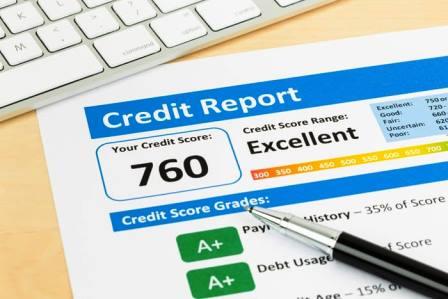Generally, a private party cannot directly report you to the credit bureaus.
Credit scores significantly impact our financial lives, influencing everything from loan approvals to interest rates. So, it’s natural to worry about negative marks on your credit report. One common question: can a private party report you to the credit bureau and potentially damage your credit score? This blog post delves into the world of credit bureau reporting and clarifies who can report information about you.
Understanding Credit Bureaus and Reporting
Credit bureaus, like Equifax, Experian, and TransUnion, are specialized companies that collect and maintain credit reports on individuals. These reports contain information about your borrowing history, including loans, credit cards, payment history, and public records like bankruptcies. Lenders and other creditors use credit reports to assess your creditworthiness before approving loans or credit lines.
Who Can Report Information to Credit Bureaus?
Credit bureau reporting is not open to everyone. Only authorized entities can submit information to your credit report. Here’s a breakdown of who can and can’t report:
- Authorized Data Furnishers: These are typically businesses that extend credit, such as banks, credit card companies, mortgage lenders, utility companies, and certain telecom providers. They report your account activity, including payment history and outstanding balances, to credit bureaus.
- Government Agencies: In some cases, government agencies can report certain information, such as student loan defaults or child support delinquencies, to credit bureaus.
Can a Private Party Report You to the Credit Bureau?
Generally, a private party cannot directly report you to the credit bureaus. This means individuals you owe money to, like friends, family members, or landlords (unless they report through a property management company), cannot submit negative information about your repayment habits to credit bureaus. They lack the authorization and access to the credit bureau reporting system.
However, there are a few exceptions:
- Debt Collection: If your debt is sold to a collection agency, the collection agency becomes an authorized data furnisher and can report the debt to credit bureaus.
- Court Judgments: Unpaid court judgments can be reported to credit bureaus by the court or a collection agency acting on the court’s behalf.
What to Do if You Believe Incorrect Information is Reported
Even though a private party cannot directly report you to the credit bureaus, errors can sometimes occur in your credit report. If you suspect inaccurate information, you have the right to dispute it with the credit bureau reporting it.
Here’s how to handle potential inaccuracies:
- Obtain a Free Credit Report: You’re entitled to a free credit report from each of the three major credit bureaus annually. Review them carefully for any errors.
- File a Dispute: If you find incorrect information, you can initiate a dispute online or by mail with the credit bureau reporting the error. The credit bureau is then obligated to investigate the dispute with the data furnisher (typically the creditor) who provided the information.
- Follow Up: The credit bureau will notify you of the outcome of the investigation. If the information is found to be inaccurate, it should be corrected. Be persistent if the issue isn’t resolved promptly.
Protecting Your Credit Score
Knowing who can report information to credit bureaus empowers you to take control of your credit health. Here are some additional tips for maintaining a good credit score:
- Make Timely Payments: Your payment history is the most significant factor influencing your credit score. Pay your bills on time consistently.
- Maintain Low Credit Utilization: Keep your credit card balances low relative to your credit limits. This demonstrates responsible credit management.
- Monitor Your Credit Report Regularly: Check your credit report for errors and fraudulent activity at least once a year. You can obtain your free annual reports from Annual Credit Report.
Conclusion
While a private party cannot directly report you to the credit bureaus, understanding credit reporting is crucial. Authorized data furnishers and, in some cases, government agencies and collection agencies, can submit information to your credit report. Regularly monitoring your credit report and disputing any inaccuracies helps safeguard your credit score. Remember, building and maintaining good credit takes time and responsible financial management.
